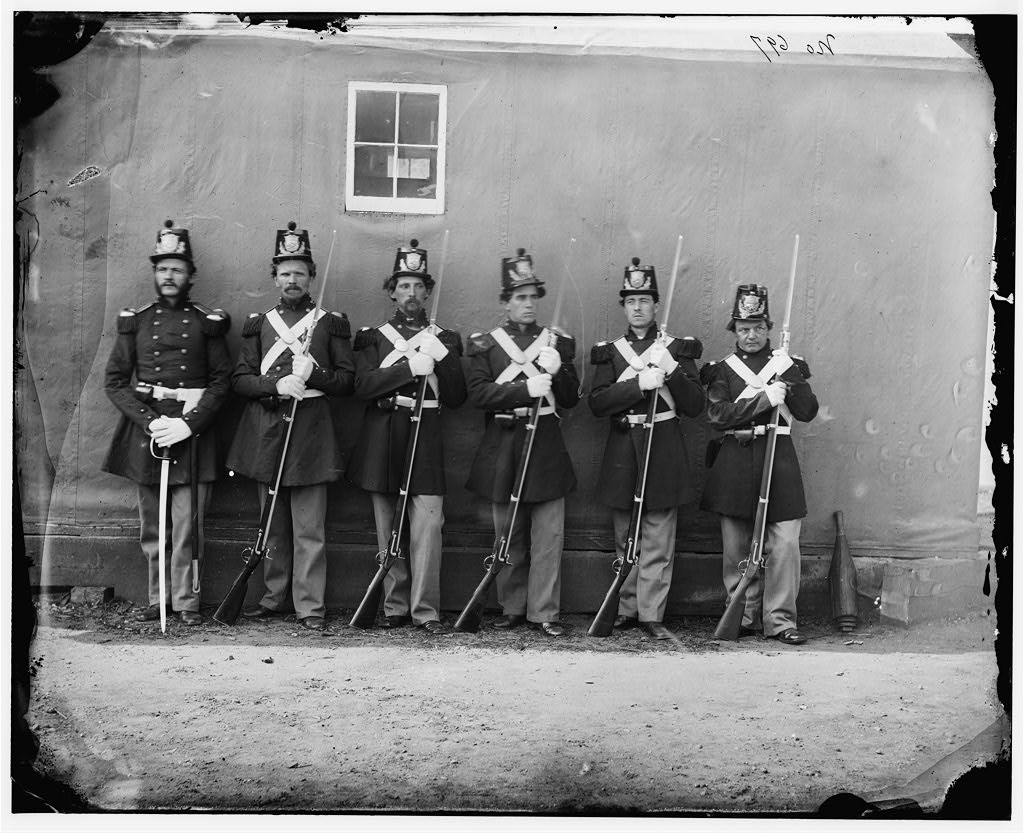How to recruit a Marine in 1880
While pouring through old Marine Corps valor citations I came across instructions for Marine recruiters from 1880. It’s fascinating to see what duties a Marine performed 140 years ago versus today.

Instructions for Recruiting Officers of the US. Marine Corps, 1880
The marines are strictly infantry soldiers trained for service afloat. Their discipline, equipment, character, and esprit du corps being that of the soldier, they necessarily give to a Ship-of-War its military character. As sentinels,they watch over the magazines, store rooms, gangways, galleys, and all lights and fires required for the use of the ship; they guard all the public property and all prisoners of war, which at times may outnumber the crew; and at all times sustain and protect discipline of a Man-of-War by their organization, distinctive character and peculiar training. In the ordinary duties of a ship at sea, they pull and haul in common with the rest of the crew; and although not required to go aloft, they keep regular watch, and are most to be relied upon to man the ropes in sudden squalls, a duty, the prompt discharge of which is as necessary to the safety of a ship as reeling or furling. Marines are also trained at the great gun exercise under their own officers, so that in time of action they are ready to assist in manning guns or to act as a reserve force to meet the casualties of battles. These duties being natural to, and part and parcel of, the service to which they belong, their absence from the deck would have to be supplied by an equal amount of physical force; and, as some part of the crew must be kept on deck to perform these important duties, it will he readily seen why a body of well-trained men, familiar with sea life and its duties of soldiers, are required.
As soldiers, they guard the ship from troubles within and from surprise without; and, as part of the ship’s complement, take part in most of the duties necessary to her efficiency as a man-of-war.
While ashore, as soldiers, they guard and protect the navy yards with the immense amount of public property within them, and are always ready for emergencies in adjacent cities. The marines have been from time to time detailed for duty with the army, as in the war of 1812, Mexico, and the Rebellion. They rendered efficient services during the labor riots in the summer of 1877, and frequently in New York, Philadelphia. Washington and other cities, mobs have been quelled by the timely appearance of the marines drawn from the navy yards of those places.
EXAMINATION OF RECRUIT BY RECRUITING OFFICER.
-
- Are you married? Ans. No.
- Have you ever been in the Army, Navy, or Marine Corps of the United States? (If the answer is in the affirmative, demand the discharge papers from the branch in which the man has served.)
- Can you read and write? (Here have the man read aloud both print and manuscript, and have him write his name, together with words and sentences, so as to avoid the possibility of securing a man who can write his name but nothing further.)
- Have you attended school? Have you studied grammar and arithmetic?
- Can you swear that you are twenty-one years old?
- The year and the day of the month of your birth?
- Are you an American citizen? (If the answer is no: Where were you born?How long have you been in the country?)
- Are you five feet six inches in height? Ans. Yes.
- Do you drink? Do you go on sprees? (Ans. No) Is (or was) your father a drinking man?
- Is any one dependent upon you for support? (If yes: Do they know of your intention to enlist? Have they objected to it?)
- Is your mother alive? (If yes: Is she aware of your intention to enlist?)
- You have firmly resolved to enlist?
- What has been your business or trade?
- Have you a certificate of character from your last employer?
- Are you in any way injured, or have you any disease which might prevent you passing the examination of the surgeon? (Here compel the man to march to and fro, before you in order to judge of his gait and manner.)
by James Forney, Captain
and Brevet Lieutenant Colonel, U.S. Marine Corps